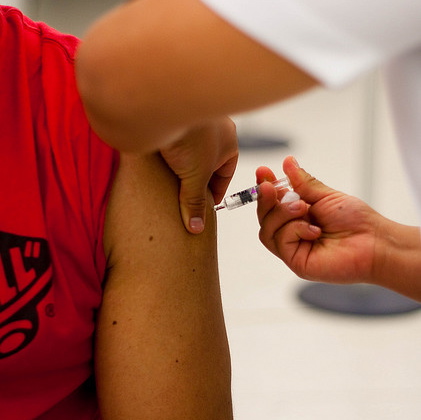
Infectious diseases are on the rise in California, jeopardizing the public health of our communities and unnecessarily endangering the lives of our children. Many vaccine-preventable illnesses previously thought to be eradicated have reemerged, and declining vaccination rates among some California communities and persistent misinformation about vaccines are in part to blame.
Recent incidences of Meningococcal Meningitis in California have sparked fears of a potential outbreak, and have served as a reminder of the critical role of vaccinations in helping to prevent this potentially lethal disease.
The meningitis cases are unfortunately not the only example of preventable illnesses reemerging to jeopardize the health of entire communities. According to the California Department of Public Health, in recent years communities across the state have battled outbreaks of measles, mumps, and pertussis (whooping cough), all conditions that were historically thought to be either eradicated or under control.
In 2011, California’s measles rate reached its highest level in 10 years, outpacing every other state in the country. Also in 2011, a mumps outbreak at the University of California at Berkeley prompted university officials to supply students and facility with an emergency measles, mumps, and rubella vaccine (MMR). In 2010, California experienced the highest number of whooping cough cases in more than half a century, with more than 9,000 reported cases that resulted in 809 hospitalizations and 10 deaths.
The re-emergence of these vaccine-preventable diseases should serve as a wakeup call for all Californians. Our children should not be dying from these illnesses. Vaccinations and education are critical to protecting the public health of California’s communities.
When parents make the choice not to vaccinate their children, it is not an individual choice that they are making because it is not only their children who suffer. When members of a community choose not to vaccinate, they are weakening the immunity of the entire community, a concept sometimes referred to as “herd immunity.” When you do not vaccinate your child, it jeopardizes the health of your neighbor’s child too.
California is one of several states in which a parent may file a personal belief exemption (PBE) to excuse their child from receiving state-mandated vaccinations. In many cases, a parent simply forgot to get their child vaccinated before school started and signing a philosophical belief exemption form was easier than making an appointment.
In other cases, however, parents are avoiding immunizations due to misinformation and lingering misconceptions about vaccines. Researchers with the American Journal of Public Health found that families who file PBEs tend to live in clusters, suggesting that parents are sharing dangerous misinformation with their peers, making outbreaks of diseases such as measles, mumps and whooping cough even more likely.
To date, no credible scientific evidence exists linking vaccinations to autism or any related behavioral conditions, and all claims to the contrary have been disproved. The American Medical Association (AMA), the American Academy of Pediatrics (AAP), the U.S. Institute of Medicine (IOM), and the World Health Organization (WHO) have all found that there is no link between vaccines and autism. And yet misperceptions persist.
The Infectious Diseases Society of America (IDSA) supports universal immunization of children, adolescents and adults, and IDSA strongly encourages all states to enact and enforce immunization mandates, except where immunization is medically contraindicated. All efforts to provide universal access to all recommended immunizations should be made.
ISDA and the Infectious Disease Association of California (IDAC) are particularly concerned about states such as California where non-medical vaccine exemptions are easily obtained. Studies demonstrate that the easier it is to receive an exemption, the higher the rate of exemptions in a particular state, and there is a direct correlation between the number of exemptions and the risk of vaccine-preventable disease.
Vaccines are the most important tool we have to combat disease, and the stakes for all Californians are simply too high.
Dr. Nilesh Hingarh is a Board Member of the Infectious Disease Association of California (IDAC) and an infectious disease physician in Valencia, California.





